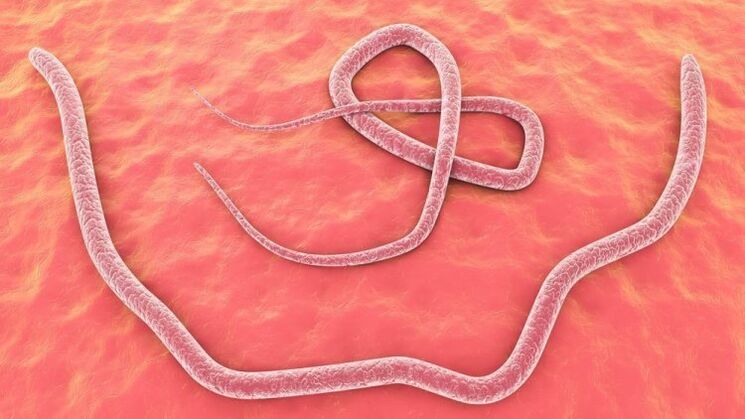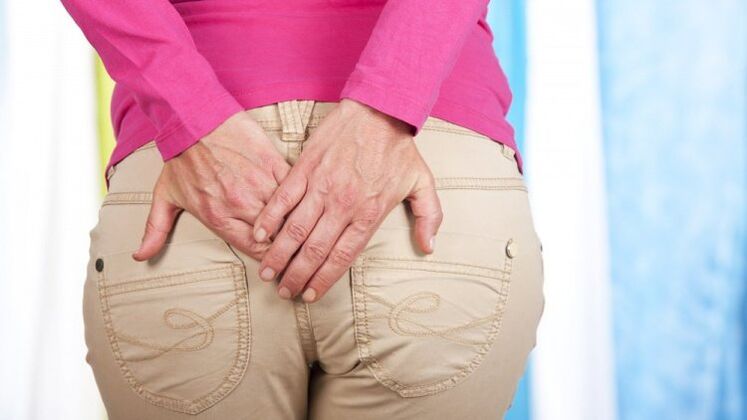In order to get rid of parasites, you first need to understand which parasites have settled in the patient's body and whether they exist. For this, there is a simple fingerprint test. If there are no more than 5 eosinophils, you can be calm-there are no parasites in your body. If the index is higher than 5, the feces are analyzed for eggs, and treatment is performed based on the results of the analysis. Parasitic drugs have many unpleasant side effects: hair loss, epilepsy, renal failure, drug-induced hepatitis and cirrhosis, so they can only be prescribed by a doctor.
Common symptoms usually attributed to the presence of parasites include nausea, fatigue, lethargy, pale complexion, irregular bowel movements and constipation. These symptoms are more likely to indicate anemia or thyroid dysfunction. If they have appeared or lasted for a while, the wisest thing to do is to see a doctor. As a precaution-wash your hands more frequently.
Fear of parasites
Many people are very sincere and very afraid of parasites, and it is said that they will try to enter their bodies. Therefore, they are prepared to spend a lot of money on scammers who not only look for, but also "discover" parasites, and then "prescribe" various dietary supplements and other drugs to treat hypothetical worms to naive victims. Some people try to get rid of parasites on their own with the help of garlic, onions and horseradish-their medicines are at least safe. However, what will be in the jar received from the future doctor is still unknown.
The problem of parasitic diseases does exist, but only in countries in Asia, Africa and South America. Therefore, in some Asian countries, the beetle infection rate is as high as 80%. There, special measures are taken to disinfect food and water. But none of this has anything to do with us. Tropical parasites cannot survive in the domestic climate, even though trichophyton disease is common in Quanlong. It is spread by fish and cats and dogs that feed on this fish. But today we will discuss other parasites, they are very likely to be infected in our midway. These parasites are roundworms and pinworms.
Ascariasis and Ascariasis

Roundworms only parasitize humans. This parasite is a fairly long yellow-red round worm. Adult males are 15-25 cm long and females are longer-up to 20-40 cm. If roundworm invades the human body, it will develop into ascariasis. At the same time, the gastrointestinal tract is more affected, but it may also cause damage to other organs and allergic reactions. Ascariasis is very common, affecting 60-85 people per 100, 000 people.
Ascaris life cycle: enters the intestine through the blood
As far as infection is concerned, the patient is not dangerous, because infection occurs when the eggs enter the body. Eggs are excreted with feces and mature in the soil first. Eggs have a dense shell, so they can stay in the soil for up to seven years. You can become infected by eating vegetables, fruits, or berries that have been in contact with roundworm eggs. In the body, the parasite goes through a long cycle of movement. First, the larva hatches from the swallowed egg and enters the bloodstream through the intestinal wall. With the blood flow, they migrate to the liver, the heart, then to the lungs, and then from the lungs to the pharynx. When the patient swallows them, the larvae in the intestine will develop into adults that can lay eggs.
Symptoms: abdominal pain, nausea, weight loss

When the larva passes through the body, allergic manifestations are revealed. The organs through which the larva passes may also be mechanically damaged-liver, blood vessels, lungs, and intestines. The patient may have a high fever, rash and pain in the liver area, and at the end of the migration phase-cough and shortness of breath. When roundworms enter the intestine, their waste is poisoned. In addition, the tip of the worm can damage or even pierce the intestines. Manifestations include abdominal pain, morning sickness, loss of appetite, and stool changes. In addition, there are impaired health, poor sleep, headaches, increased fatigue, and weight loss. The presence of roundworms in the intestines can lead to vitamin B6, A and C deficiencies.
Diagnosis of Ascariasis
For diagnosis, blood is collected for general analysis (increased eosinophils, increased ESR, and sometimes anemia) and antibody tests. Under the microscope, larvae can be found in the patient's sputum. In the intestinal stage, roundworm eggs are detected in the feces, and sometimes the worm itself is also detected.
Roundworm medicine
Except for complex cases, treatment of roundworms does not require hospitalization. Assign patients a diet rich in vitamins, low fat and carbohydrates. Food intake-four to five times a day. Shown are drugs with antiparasitic effects, antihistamines, probiotics and enzyme preparations.
Complications of ascariasis

Complications of ascariasis may be intestinal obstruction caused by worm ball obstruction. When roundworms crawl into the biliary tract, vomiting, jaundice, and severe abdominal pain on the right side may occur. According to the same principle, roundworm pancreatitis is possible, and respiratory failure can also occur when the respiratory tract is blocked by parasites.
Pinworm disease and pinworm disease
Pinworms are translucent white worms, only 0. 5 to 1 cm long, and their bodies are pointed at one end, hence the name. They are mainly parasitic in the large intestine, and if self-infection does not occur, they can disappear over time without drugs. The fact is that in order to lay eggs, females will descend to the anus and do so in the perianal folds, and then they will die. In patients, this process can cause severe itching. If the patient does not wash their hands after scratching the itchy area, the eggs will fall on the linen, surrounding objects, food, and may remain under the nails. Patients can swallow pinworm eggs by themselves. This is how self-infection occurs.
Symptoms: anal itching

The main symptom is severe itching of the anus at night, because the parasites lay their eggs at this time. Enterobiasis may cause gastrointestinal symptoms: abdominal pain, nausea, increased gas production, and nervous system: fatigue, sleep disturbance or insomnia (severe anal itching can interfere with normal sleep). Pinworms can crawl into the female reproductive tract, causing irritation, pain, and discharge. It even causes a cough-if it penetrates into the lower respiratory tract.
Diagnosis and treatment of pinworm disease
It is mainly used to scrape from the perianal folds (or use tape), and then examine the resulting material under a microscope. So you can find worm eggs. In blood tests, such as ascariasis, eosinophils will increase, and there will be complications-signs of inflammation (increased white blood cells, increased ESR). For treatment, antiparasitic drugs are used. Some of them are contraindicated for pregnant and breastfeeding women. To reduce itching, the anus is lubricated with an ointment with anesthetic. The most popular folk remedy is garlic.
Complications: ecological disorders, appendicitis
Complications will depend on the body's response and the number of parasitic worms. Possible ecological disorders, appendicitis, vaginitis, salpingitis, endometritis (inflammation of the appendix).
Prevention of ascariasis and ascariasis

Ascariasis:
- Identify and treat patients in a timely manner;
- Loosen the sandbox (the eggs cannot withstand direct sunlight);
- Wash your hands after going to the toilet and before eating;
- Wash vegetables, fruits, berries.
Enterobacteria disease:
- Iron clothes thoroughly, especially on wrinkles;
- Clean the apartment with disinfectant;
- Provide patients with personal bedding and sleeping places;
- It is important to have children cut their nails short.



































